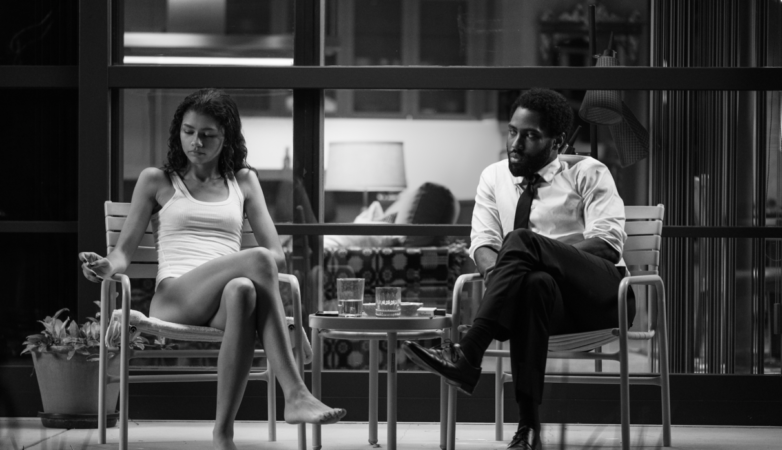Editor’s note: Mild spoilers for Netflix’s Malcolm & Marie
Malcolm & Marie is a film filled with intense, sometimes lengthy monologues. The most memorable one, however, may be one in which the character of Malcolm (John David Washington) rants to Marie (Zendaya) about his issue with a positive review written by a Los Angeles Times critic. Malcolm’s opinion is an idea that has come up a lot on criticism: is art inherently political because of the artist?
In an interview, Shadow and Act asked director Sam Levinson (who also is the creator and showrunner of Euphoria) if his view of critics is in line with how he wrote Malcolm. We also asked how reviews and criticism impact the way he processes the reception of his work.
“I think it’s a great question because look, I grew up loving film, but I also grew up loving film criticism and I think that great critique can push filmmaking forward as much as filmmaking can,” said the director. “And the way that I’ve learned about film or understood film came through criticism. And at the same time, just understanding the kind of repercussions of [a] story on a cultural level on a political level, is extremely illuminating and also important. I guess because I’m a filmmaker and Malcolm’s a filmmaker, there’s an immediate assumption that my position is completely aligned with his, which I don’t actually think is necessarily true. I think I share both Marie’s sentiments about it and also aspects of Malcolm’s sentiments.”
“I think about it in terms of say Arthur Miller when he wrote death of a salesman, he didn’t want it to be a Jewish family,” he continued. “So he named the kids Biff and Happy, the least Jewish names you could think of, because he didn’t want people to say to dismiss his work as, ‘Oh, this is a Jewish family, this isn’t an American family.’ And so I think that there’s always a certain frustration in not feeling like you you’ve been heard. And so I like the idea of asking those questions…questions that I think will be with us till the end of time. But I also liked Marie pushing back on those questions, because I also think that they’re valid questions for any filmmaker to think.”
We also asked Washington if he believes there is a particular onus put on underrepresented creatives to create art to highlight the issues with society. “The reason I love movies, the reason I’m doing what I do is because I was inspired by artists before me,” he explained. “When I see, a Spike Lee movie…his movies were inherently political, but I just felt the people, the characters, the actual individuals…not necessarily the entire message. I might’ve been too young to understand some of that stuff, but the people in the individuals in it, that’s something I’m drawn to. So, you know, we get happy as a community, people that look like us, especially, when we see us on a big screen, whether it be Black Panther or like a Rue in Euphoria, that we can occupy so many different spaces in different places and we’d like to be represented. That’s a very powerful thing. And I think it should be celebrated.”
For the actor, it presents an opportunity for multiple entities to come together. “I think it should be welcomed and talked about often, always continuously. It’s [in] a good place now [that] we’ve got streaming. We have many more opportunities than in the ’90s and ’80s and on down the line, but we have a lot more work to do. So it’s important to celebrate, to continue the discussions…whether you report about it, or you do the thing, or you direct the thing, or you greenlight the thing…it’s us being able to do that together. And I think that’s a beautiful thing for it to continue.”
Malcolm & Marie is currently streaming. Watch the interviews below:

